The 10 Best Gravel Tires 2020
A gravel tire is a fusion between a road bike tire and a mountain bike tire; you can use it to ride on both smooth tarmac roads or rough terrains.
Of course, there are different styles available from the semi-slick, small knobs to the big knobs. We even have the 700 c and 650 b wheel sizes with different width ranges.
We will get down to that in a minute.
In this guide, we’ll help you to choose the best gravel tires money can buy and tell you what you need to look out for.
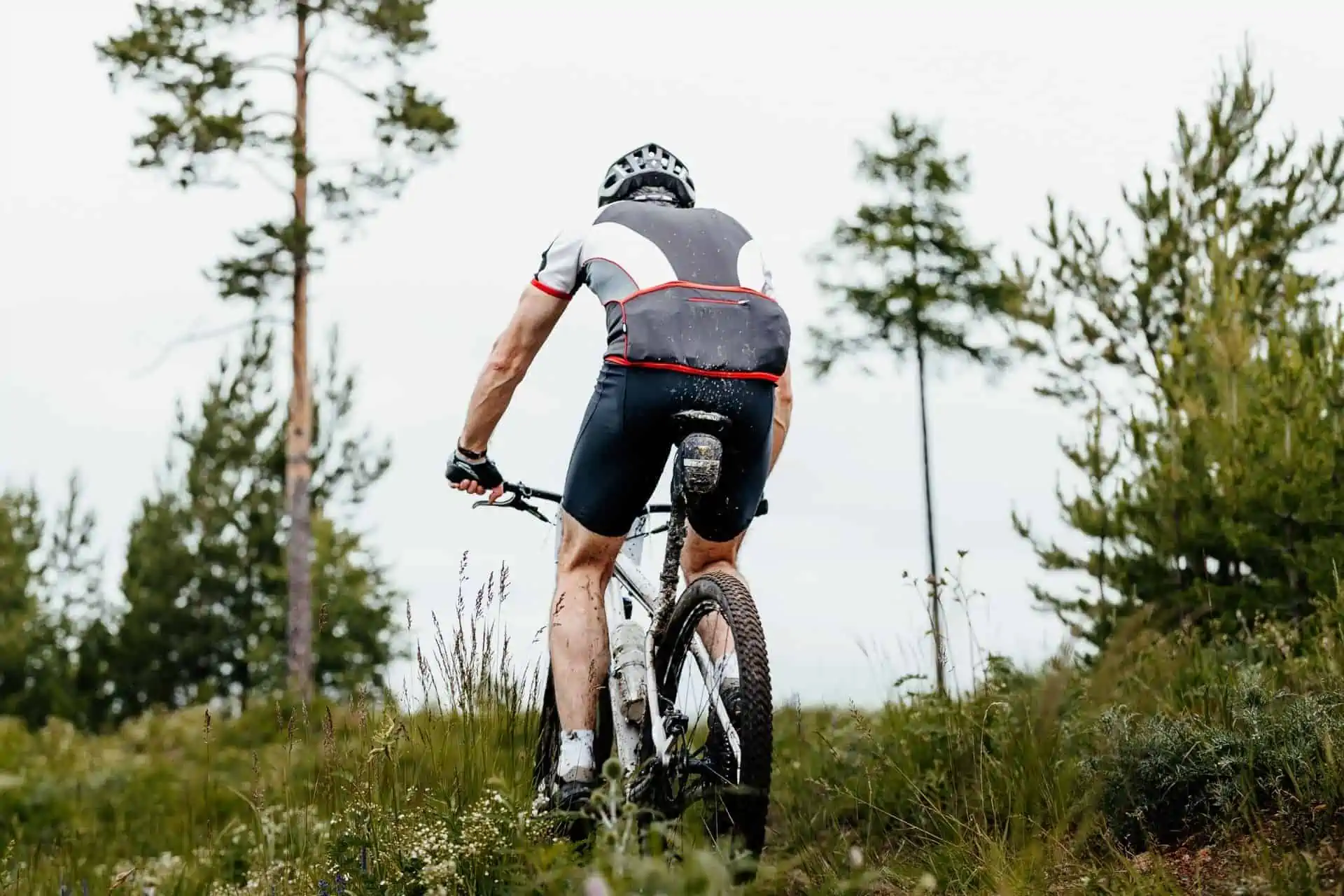
Let’s dive right in.
The 10 Best Gravel Tires
WTB Exposure – Our Pick
- Usage: road/Gravel race
- Weight: 345 grams
- Width: 30/30mm
This is a 700 c gravel tire that is available in different tire widths from 30 mm to 36 mm. Additionally, you can choose different semi-slick tread patterns depending on the road you will be riding on.
However, whichever your preference, they’re all adapted for tarmacked and class 1 gravel roads. Don’t worry, they’re tubeless tires that are puncture resistant.
Unfortunately, it’s not very durable and it’s not designed to ride on class 2 and class 3 gravel terrains.
Manufacturer’s specs:
- Type: Tubeless
- Tread: Semi-slick
- Wheel size: 700 c
- Tire width: 30 mm to 36 mm
What We Like
- It self-repairs
- Comfortable on terrain
- Lightweight
- Good for braking on wet paved surface
What We Don’t Like
- It’s not very durable
Summary
A budget-friendly tubeless gravel tire for tarmac and class 1 gravel roads.
Schwalbe G-One Allround
The Schwalbe gravel tire is covered by a double layer of nylon material that makes it hard to get a puncture. Even if it does have a puncture, you can continue riding since the sealant will do its magic.
Due to its small knob tread pattern and low air pressure of 45 to 70 PSI, it can comfortably ride on most city roads and rough countryside terrains. Remarkably, under the right conditions, you can speed it up 25 km/hr.
However, it has a maximum weight load of 70 kg, which could be an inconvenience for some folks.
Manufacturer’s specs:
- Type: Tubeless
- Tread: Semi-slick
- Wheel size: 700 c
- Tire width: 35 mm
What We Like
- Low rolling resistance
- Very durable
- Tight tread pattern
- Suitable for both tarmac and countryside terrain
What We Don’t Like
- Low maximum weight loads
Summary
One of the best gravel tires for road bikes if you want to ride on both city and countryside roads.
Continental Terra Speed
tubeless
small knob tread
great air retention
This is a tubeless small knob tread gravel tire that is ideal for pavement, class 1 and class 2 roads. But what really makes it special is the layer of cordura nylon; a material that is resistant to tears and abrasion.
In case you’re wondering, it’s available in different wheel sizes and tire width; you can either choose the 700 c or 650 b with a 35 mm tire width or the 700 c or 650 b with a 40 mm tire width.
The biggest complaint is that it doesn’t fit all road bike rims so you have to make sure they’re compatible before you order.
Manufacturer’s specs:
- Type: Tubeless
- Tread: Small knob
- Wheel size: 700 c, 650 b
- Tire width: 35 mm, 40 mm
What We Like
- Improved durability
- Better air retention
- Easy to install
- Available in different sizes
- Low rolling resistance
What We Don’t Like
- It doesn’t fit all road bikes
Summary
A set of durable small knob gravel tires for class 2 terrains.
Gravelking SK
700 x 38 C
Knobby Aramid Folding Tire,
Black/Brown
For a tire that is called the “Gravel King”, it sure lives up to its expectations. For starters, the 650 b size has a width of 48 mm which is very comfortable on rough terrains.
Even better, it can be used as either a tubeless and tubed gravel tire depending on your preference. Thanks to its AX technology that utilizes narrow cords at a high density, it’s lightweight and flexible.
Despite its impressive performance on gravel, it can be a little difficult to install as a beginner.
Manufacturer’s specs:
- Type: Tubed, tubeless
- Tread: Small knob
- Wheel size: 700 c, 650 b
- Tire width: 32 mm, 35 mm, 38 mm, 43 mm, 48 mm, 50 mm
What We Like
- Lightweight and flexible
- Very durable
- Low rolling resistance
- Very comfortable
- Suitable for both smooth and rough roads
What We Don’t Like
- It can be difficult to install
Summary
If you’re looking for the widest width, this could be a good option.
WTB Nano
700 x 40c TCS
Light Fast Roll Tire (tan sidewall)
These are the “big boys” gravel tires that you could use to ride on class 3 and class 4 roads; the toughest of the toughest terrains with very big rocks and other obstacles.
If you look closer, you will notice it’s designed with big knob tread patterns and an elevated centerline to reduce drag and rolling resistance.
Did I mention, you can use it as both a tubed and a tubeless tire?
Its biggest strength is also its weakness. Due to its aggressive knobs, these WTB Nano tires are not fast on smooth roads.
Manufacturer’s specs:
- Type: Tubeless
- Tread: Big knob
- Wheel size: 700 c
- Tire width: 40 mm
What We Like
- Fast speed on rough terrains
- Low tire pressure
- Less likely to have a flat
- It can be used as both tubed or tubeless
- Lightweight
What We Don’t Like
- Slow speed on tarmac roads
Summary
This is one of the best gravel tires for class 3 and class 4 roads.
Challenge Gravel Grinder
TLR Tire
Tubeless Black
38mm
The Challenge Gravel Grinder is designed with small knobs at the center and bigger knobs on the shoulders. This means you can use it to ride on smooth pavement and dirt roads with loose sand, mud, and grit.
Besides its tubeless technology that automatically seals punctures, it’s very lightweight to minimize rolling resistance and increase speed.
What’s more, you can choose the tire width from 33 mm to a wider 46 mm that optimizes comfort.
There is just one thing though; the sealant can leak if you don’t install it properly.
Manufacturer’s specs:
- Type: Tubeless
- Tread: Small knob
- Wheel size: 700 c
- Tire width: 33 mm, 38 mm, 42 mm, 46 mm
What We Like
- Versatile design
- Different options available
- Long-lasting material
- Good traction on dirt roads
- Low rolling resistance
What We Don’t Like
- The sealant can leak
Summary
If you want to ride on paved and gravel roads, you can fit these tires on your road bikes.
Maxxis Rambler
- 700 x 38C
- Great for the toughest terrain
- Performs well on dry and hard ground
The treads on the Maxxis Rambler are big with small spaces in between; just the kind of design you need for cycling on the toughest mountain terrains.
As far as the options go, they’re all available in 700 c wheel size but you can choose the width size from 38 mm to 50 mm.
Another thing; it is made using 60 TPI carcass which is the same type of casing that is used on mountain bike tires to make them more resistant to cuts and abrasions.
On the flip side, don’t expect this gravel tire to make you go fast on tarmac roads. However, it will impress you on dry and hard terrains.
Manufacturer’s specs:
- Type: Tubeless
- Tread: Big knob
- Wheel size: 700 c
- Tire width: 38 mm, 40 mm, 45 mm, 50 mm
What We Like
- Resistant to puncture
- Different width sizes available
- It can ride on the toughest terrains
- Easy to assemble
What We Don’t Like
- Not fast on paved roads
Summary
A class 3 and class 4 road ready to mount gravel tire that is available in different tire width sizes and colors.
Kenda Flintridge Pro
- 700C x 40
- Easy to mount
- Great on loose rock and mud
If you’re planning to cycle in the desert or when it’s snowing outside, this 700 mm diameter tire with a 40 mm width could improve the road traction.
More succinctly, it’s designed with small knobs on the center and bigger knobs on the shoulders specifically to adapt it for class 1 and class 2 gravel roads.
Since the beads are foldable, it’s lightweight and easier to stretch especially when you’re mounting it. Surprisingly, it can turn corners faster and brake easier on wet dirt roads better than some big knob tires.
Even though it’s a solid gravel tire that can ride over small sharp rocks, it’s not designed for class 3 and class 4 aggressive terrains.
Manufacturer’s specs:
- Type: Tubeless
- Tread: Small knob
- Wheel size: 700 c
- Tire width: 40 mm
What We Like
- Adapted for sand and snow
- Lightweight
- Comfortable ride
- Easy to install
- Fast on corners
What We Don’t Like
- Not designed for class 3 and class 4 gravel roads
Summary
This is one of the best gravel tires for desert cycling.
Terrene Elwood
- 700 x 40
- Light
- Durable 60a rubber
This Terrene Elwood gravel bike tire is made by a 60a rubber compound. If you don’t know what that means, a 60a rubber compound is a very hard type of rubber that rolls faster and it doesn’t wear out easily.
Other than that, the material is available in two varieties; light and tough. Whichever option you prefer, this is the ideal tire if you’re looking for a crossover of a road tire and a mountain bike tire.
Speaking of the 60a rubber compound, it doesn’t have a lot of grip compared to softer materials.
Then again, it wouldn’t be durable if it was too soft.
Manufacturer’s specs:
- Type: Tubeless
- Tread: Small knob
- Wheel size: 700 c, 650 b
- Tire width: 40 mm, 47 mm
What We Like
- Very durable
- Light and tough casing
- Puncture resistant
- Fast-rolling tread
What We Don’t Like
- Less grip on some off roads
Summary
If you’re cycling on roads with lots of potholes and sharp rocks, this tubeless tire would make your ride comfortable.
Hutchinson Sector
- 700 x 38
- Tubeless Ready
- Black Bike Tires
- Recommended for gravel on Dry or mixed terrain
At the center, it’s bald to improve traction and make it faster on smooth surfaces. But on the shoulders, it’s designed with small knobs just in case you want to ride on a sidewalk with loose stones, sand, clay, or mud.
How about the sizes? If you want the fastest one on the pavement, you can start with the 35 mm or 37 mm tire width. However, if you prefer comfort over speed, your best bet would be the 700 c wheel size with 38 mm or 40 mm tire width.
Sure, the Hutchinson Override tires are puncture-resistant but if you run over broken pieces of glass, we’re not sure if you won’t get a hole that is too big to fix.
Manufacturer’s specs:
- Type: Tubeless
- Tread: Semi-slick
- Wheel size: 700 c
- Tire width: 35 mm, 37 mm, 40 mm
What We Like
- Lightweight
- Puncture resistance
- Fast on both asphalt and dirt road
- Easy to install
- Different sizes available
What We Don’t Like
- Hard to repair
Summary
A semi-slick gravel tire that can be used for racing on smooth dirt roads.
What is A Gravel Tire, and Why Would You Use It?
A gravel tire is basically a hybrid of a mountain bike tire and a road bike tire.
To put it into perspective, most mountain bikes have tire widths that are not less than 2.1 inches and most road bikes have tire widths that are not bigger than 25 mm. But the width of a gravel tire is somewhere in between.
Why would you need gravel tires?
- Versatility. Since gravel tires are a crossover between road bike tires and mountain bike tires, they allow you to ride your bike on both tarmacs and off-road terrains.
-
They’re cheap. Instead of buying a new mountain bike when you want to ride on rough terrains, or a new road bike if you want to cycle on the tarmac, it’s much cheaper to buy gravel tires and do both.
-
Different range. You can easily change the tires to fit the type of range that you want.
For instance, if you want a gravel tire that is more geared to speed on tarmac roads, you can choose something that is about 60 percent road and 40 percent mountain terrain.
Different Types of Gravel Tires
Tubed
Although they’re becoming rare to find on gravel tires nowadays, tubed tires have traditionally been used on most bikes. Let’s have a look at the pros and cons.
Tubed Tires Pros
-
They’re cheaper. If you’re on a tight budget, most tubed tires are way cheaper than tubeless and semi-slick type of tires.
-
They’re easy to patch. Compared to tubeless tires, tubed tires are easy to patch in case of a repair. Not to mention, it’s easy to find replacement tubes in almost every repair shop.
-
Convenient repair kit. Talking about repair, all you need to fix a tubed tire is a patch kit, tire levers, and a spare tube. Those are small and light items you can easily fit in your bike saddlebag.
-
Ideal for road cycling. High-pressure tubed tires are well-suited for cycling on tarmac roads.
-
They’re easy to install. Unlike a tubeless tire, you don’t need to use a lot of sealants to set it up. Actually, all you need is a little bit of practice to set up a tubed tire in a few minutes.
Tubed Tire Cons
-
They’re outdated. Sure, they’re cheaper but let’s face it; tubed tires have become outdated in the past few years. The cycling industry seems to be pushing more for tubeless tires nowadays.
-
It’s easy to get a puncture. A small thorn on the road can easily puncture a tubed tire and make it flat in a few minutes.
-
They’re heavier. Adding a tube to your tire increases its weight by about 200 grams. That means you will require more energy to accelerate.
-
They’re not the best option for gravel tires. The ideal gravel tire should have low pressure to make it easier to pass through rough terrains.
Tubeless
It is exactly as it sounds; a tubeless gravel tire doesn’t come with a tube inside. How does it perform?
Tubeless Gravel Tire Pros
-
Less likely to have a flat. When you ride over a nail or thorn that punctures your tire, the liquid sealant in a tubeless tire will fix the hole immediately and prevent a flat tire. That means you don’t have to stop when you have a puncture.
-
Better traction on off-road. Due to their low pressure, tubeless gravel tires are adapted to offer better traction on sand, gravel, or ice. Also, tubeless tires can climb steep hills better than tubed tires.
-
Lightweight. Since it doesn’t have a tube inside, it’s lighter than the typical tubed tire. That means you will use less energy to make it spin.
-
Comfortable. Tubeless gravel tires have lower PSI so that when you hit a pothole or a rock, it will cushion some of the shock and vibrations without making you bounce.
-
Better at corners. It’s not just about acceleration, but the improved traction on tubeless tires makes it easier to cut corners without slowing down.
Tubeless Gravel Tire Cons
- They’re expensive. For a tire that patches itself up on the ride, you can expect it to be more expensive than traditional tubed tires.
- They can be difficult to set up. Setting up tubeless tires can be a little bit complicated and time-consuming. Other than fixing the tire beads on the rim to make it airtight, you have to quickly add the sealant and make sure the air doesn’t escape.
- They require maintenance. To prevent the sealant from drying up, you have to top it up every season. That also adds to the cost of maintenance.
- A spare tube is required. Sometimes you can get a puncture that is too big to repair using a sealant. For that reason, you would need a spare tube just in case.
Our Verdict: There are two main reasons why we think tubeless tires are better than tubed tires for gravel cycling.
First, it’s hard to get a flat tire when you’re using a tubeless type of tire.
Second, tubeless tires have lower rolling resistance which makes them suitable for rough terrains; something you will need in a gravel tire.
Semi-Slick
Semi-slick gravel tires are bald in the middle with small knobs on the sides or shoulders. They’re smooth on the center and a little bit rough on the sides.
Most semi-slick gravel tires have a width of about 30 mm to 34 mm and they’re best suited for paved roads and class 1 gravel terrain.
In other words, you should choose semi-slick tires if you know most of the time you will be riding on smooth pavements and sidewalks with sand, clay, mud, grit, or small rocks.
Small Knob
These types of gravel tires have small and short knobs fixed on the center and shoulders; although some types have bigger knobs on the tire’s shoulders.
Most small knob tires are usually 35 mm to 38 mm wide and they’re best adapted for pavement, class 1, and class 2 gravel roads.
This is the type of tire tread that you should pick if you’re going on a trail that is rough but not too rough.
Big Knob
As the name suggests, big knob gravel tires have large tread patterns on the center and shoulders.
A big knob gravel tire is typically very tall with a width of at least 38 mm to 42 mm.
If you’re riding on terrains with some big rocks (class 3 or class 4), these types of tire knobs would be ideal. However, big knob tires are slower on the pavement, class 1, and class 2 gravel roads.
4 Things to Consider When Buying Gravel Tires
Where are you riding?
Before you choose a tire, you should first know the type of gravel road you will be riding on.
As we all know, “gravel” is a relative term and there are different categories. Let’s have a look.
Class 1 aka “Dirt”: A class 1 road is what you would find on most poorly maintained rural roads. The surface is usually consistent with loose dirt and you may find very small rock fragments on your path.
The best tire width for this category would be anything between 30 mm to 38 mm with either semi-slick or small knob treads.
Class 2 aka “gravel”: This type of road is characterized by sand, clay, and loose mid-sized gravel. You could even encounter a few potholes here and there.
The ideal tires for class 2 gravel should have a width of at least 25 mm to 40 mm and small knob tread patterns.
Class 3 aka “rocks”: On class 3 paved road, you will find lots of big rocks and trenches. For this type of terrain, you would need the big knob tires aka the “big boys” with a width of about 38 mm to 42 mm.
Class 4 aka “technical”: Now this is where you find all sorts of obstacles from big rocks, fallen trees to wide potholes.
You know, like a mountain or deep in the woods type of terrain?
Just like class 3, you would need tubeless gravel tires with big knob treads for this mission.
Wheel Size
Gravel tires are usually available in two standard sizes; 700c and 650b wheel sizes.
Most 700c gravel tires are at least 28 inches in size with an inner diameter of 622 mm. On the other hand, the 650 b wheel size is about 27.5 inches with an inner diameter of 584 mm.
If you want extra comfort and traction, you should choose the bigger wheel size.
But if you want an agile gravel tire, the 650 b wheel size will do you justice.
Tire width
Most gravel tires in the market have a tire width of between 28 mm to 57 mm. Of course, you should choose the ideal tire width depending on the frame and fork of your bike.
Otherwise, if you choose a 700c wheel size, anything from 38 mm to 42 mm tire width would be a good option. But if you prefer 650 b wheel size, you can go as wide as 57 mm.
However, keep in mind that the wider the tire, the easier it would be to ride on rougher terrains. The only disadvantage would be wider tires increase weight and drag. This would slow you down if you tend to ride on smooth roads.
Pressures
There is not much to think about the tire pressure. Lower pressure offers better comfort and traction on rough terrains.
Nevertheless, if you will be riding on smooth paved roads, you should keep the air pressure higher.
Fortunately, tire manufacturers usually recommend the appropriate PSI but you can adjust depending on the terrain.
Can I put gravel tires on my road bike?
Yes. You can put gravel tires on a road bike to make it more comfortable and versatile for off-road riding.
However, you should make sure the tires are compatible with your bike frame and brakes.
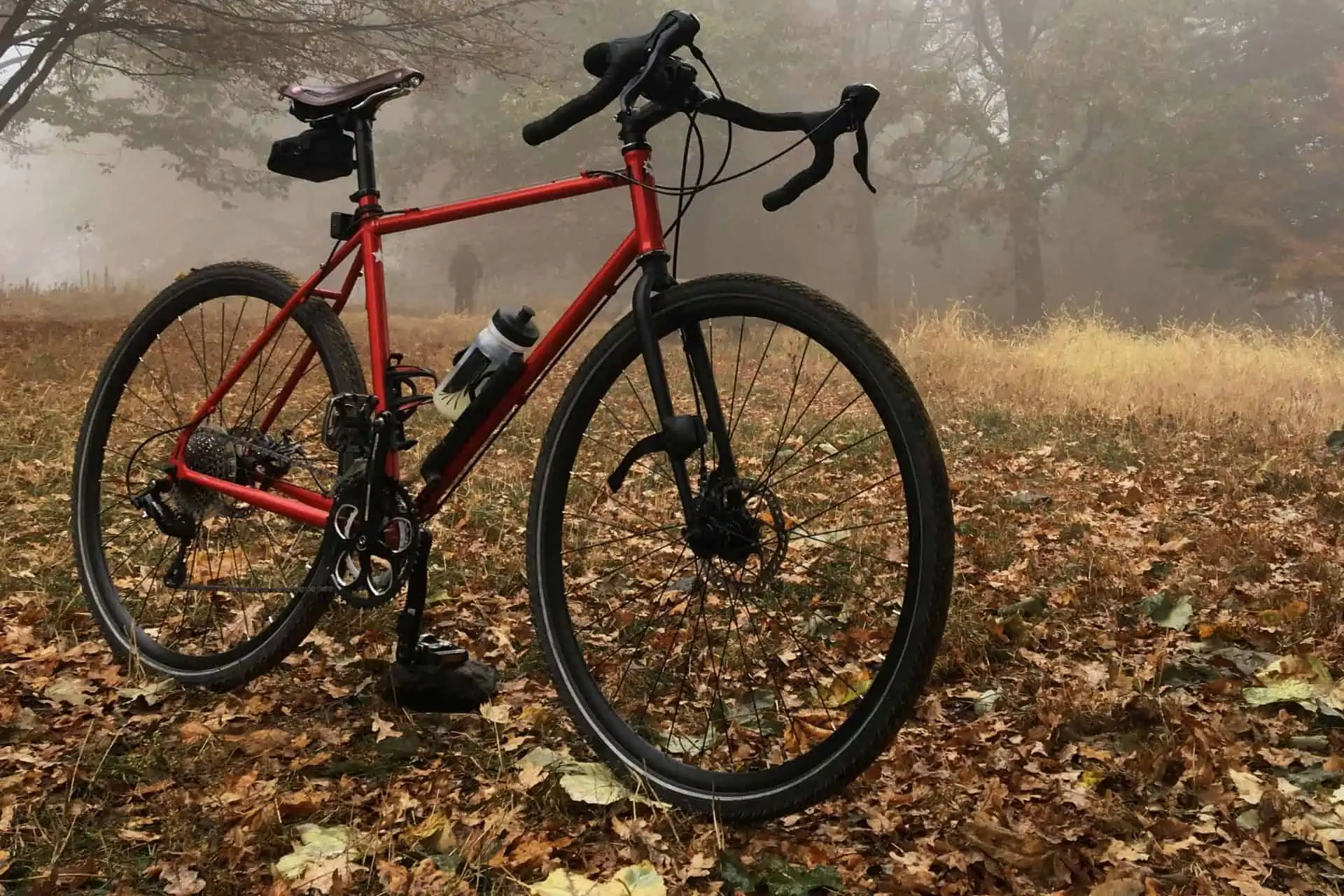
Conclusion
There is no “one size fits all” gravel tire. Whatever you decide all comes down to the compatibility of your bike and where you want to ride.
Regardless, all of the tires we’ve reviewed on this guide tick all the boxes when you consider durability, versatility, and consistency.










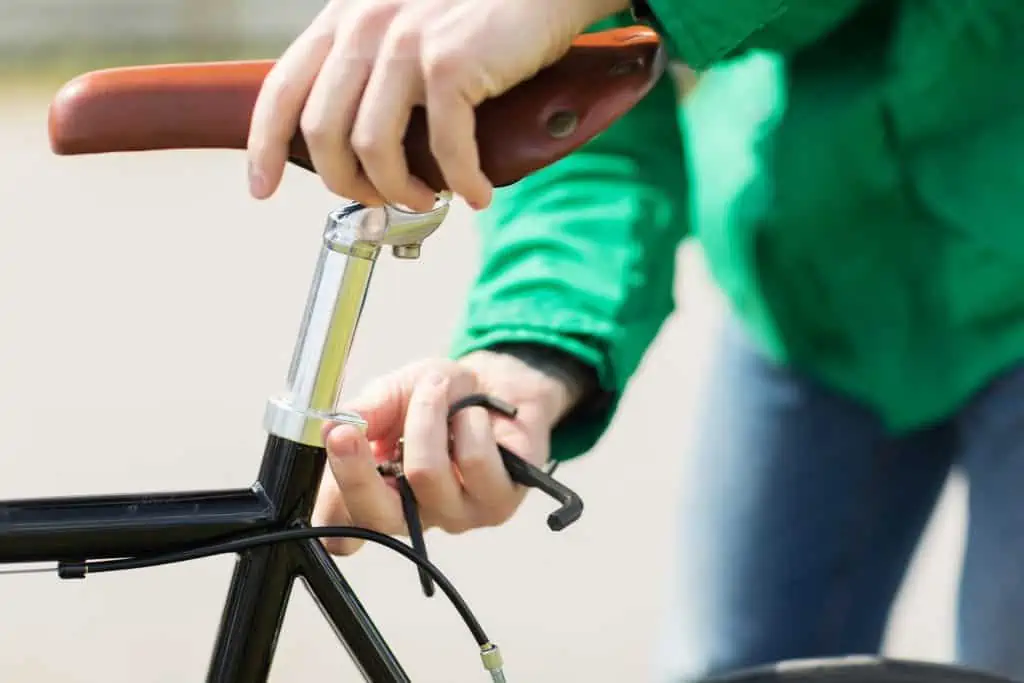
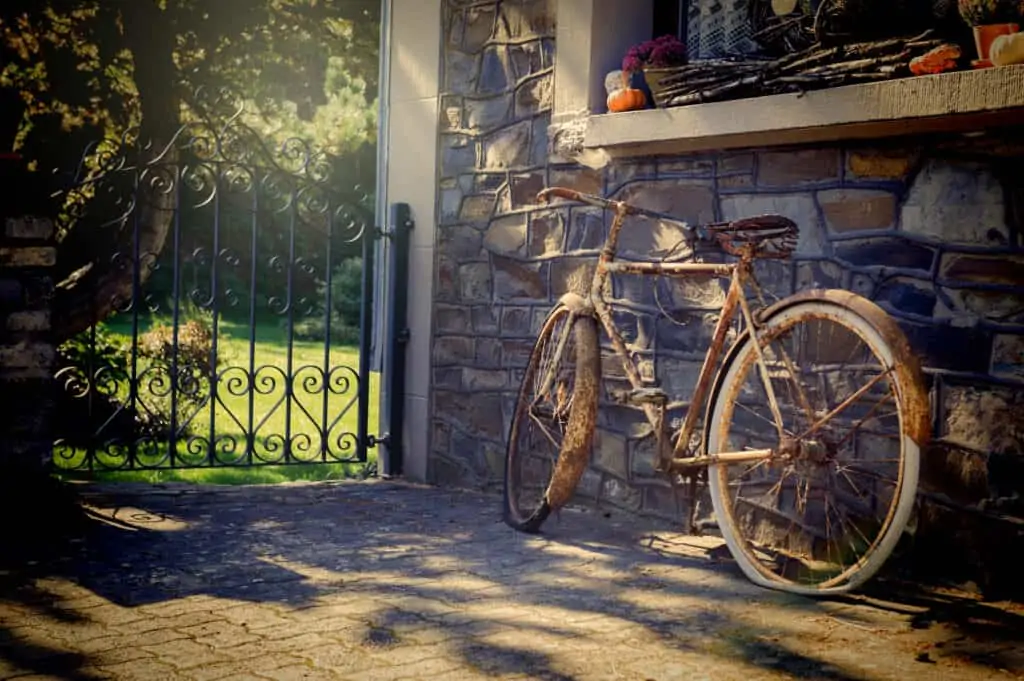
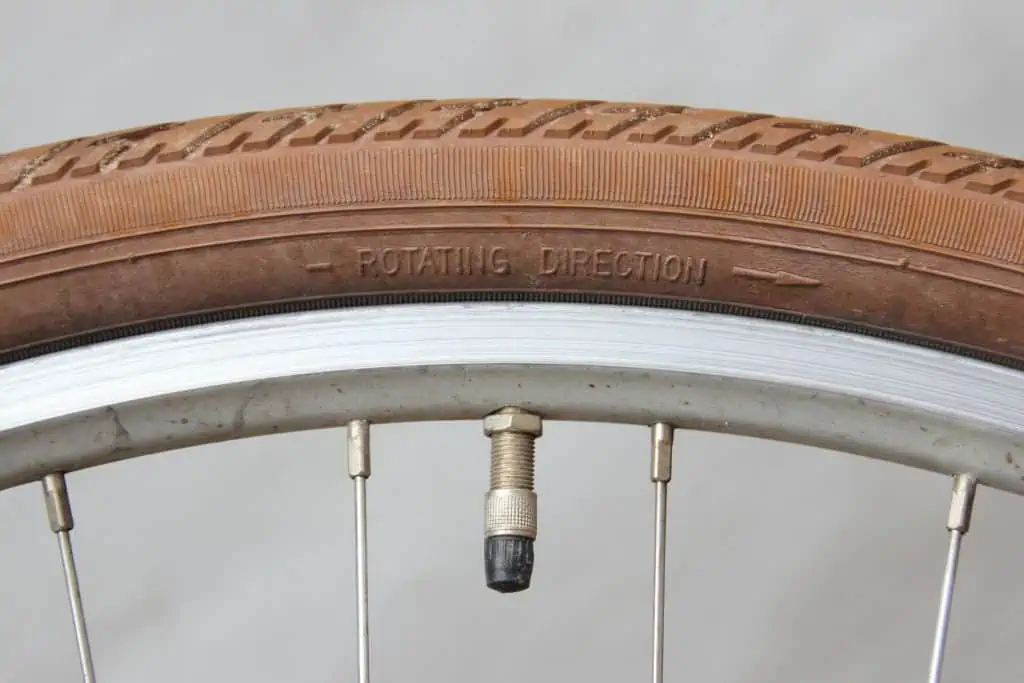
Pingback: The 5 Best CO2 Inflators - inspiredcyclist